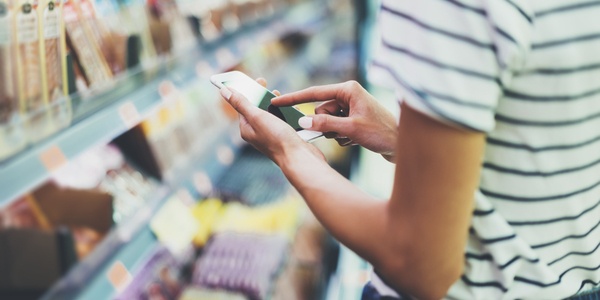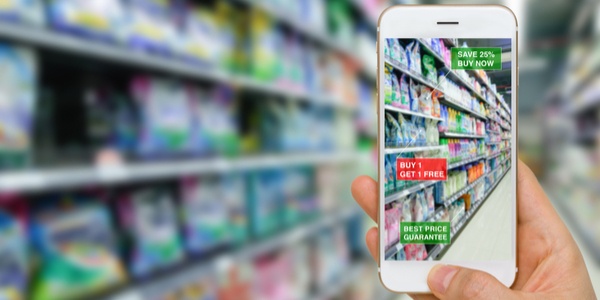There is hardly another business influenced quite as profoundly by consumer behavior as the retail industry. Retailers are forced to adjust to their customer’s needs in order to keep up with the global market. Without a doubt, 2020 was a tough year for the retail sector. Lockdowns forced stores to close down and in some places around the world, we're still only starting to see a reopening of the retail industry as we now it. But with things beginning to look a bit brighter down the road, the retail industry can start looking ahead and prepare for when we can once again visit stores like we used to. In this article we will look into five of the most significant technology trends within the retail industry.
1. The use of mobile devices during the shopping process will thrive
According to a survey by Accenture, 73% of consumers would prefer to search for information about products on their smartphones than to ask a store-assistant for help. Online data offers detailed product information, often answers the most specific questions, and can furthermore provide product alternatives as well as credible reviews from others.
As the product portfolio is constantly growing, employees are often overwhelmed and have difficulties keeping up to date regarding all items. Stores will increasingly equip their staff with mobile devices, giving them the required knowledge to provide better customer service.

2. Personalization as main priority within the retail industry
Personalization in retail has been an ongoing topic for a long time now, which is why consumers request a more intense personalized shopping experience than just receiving emails containing their names. Today, retailers are having the chance to target shoppers with tailored offers based on their digital footprint. Giving the possibility to provide consumers with relevant offers according to their personal desires, personalization can strengthen people’s trust and loyalty towards the retailer.
3. Technology will become an integrated part in the shopping experience
During the pandemic there's been a significant increase in e-commerce opposed to in-store shopping as retailers during lockdown has had to attempt to reach their customers through other channels. Since this has triggered a digital-first approach, the implementation of digital technology in order to attract customers to stores rather than online shops becomes unavoidable in the future. Loyalty apps, digital shopping assistance, indoor wayfinding, and other solutions will make the consumer feel engaged much more in the process and thus take the shopping experience to the next level. The creation of seamless omnichannel in-store experiences, preferably by using apps, will be the main focus within the retail industry in order to adjust to the needs of the customers.
4. Beacons have a great potential to become the key technology in the retail industry
According to a study by Microsoft Dynamics AX beacon-triggered offers will increase the probability to purchase a product to 73%. Location-based technology allows retailers to send relevant offers straight to the customer's mobile device according to his or her position in the store. Moreover the shopper can receive detailed information about viewed products, providing a personalized in-store experience.
Over long distances, beacons can also be used to understand shopping patterns such as the customer flow, the purchasing frequency and if people visit different branches. In the coming years, beacons will significantly influence the in-store shopping experience.
5. Retailers that can offer an unique in-store experiences will flourish
With the rise of online shopping, retailers have to find new ways to get customers to go into their stores rather than shopping online. Retailers increasingly try to make the shopping experiences as convenient as possible for the customer. New innovations will supply the consumers with all the important information about the desired product to simplify and fasten the decision making process. Planning the visit before even entering a store (e.g. by browsing the shelves online, creating digital shopping lists and receive information about the stores stocking) will become more popular among customers.
Did you know that the MapsIndoors platform can help you take your retail experience to the next level? Read more about the platform here, or feel free to contact us for more information.



.png?width=220&name=Google_Premier_Partner%20(1).png)